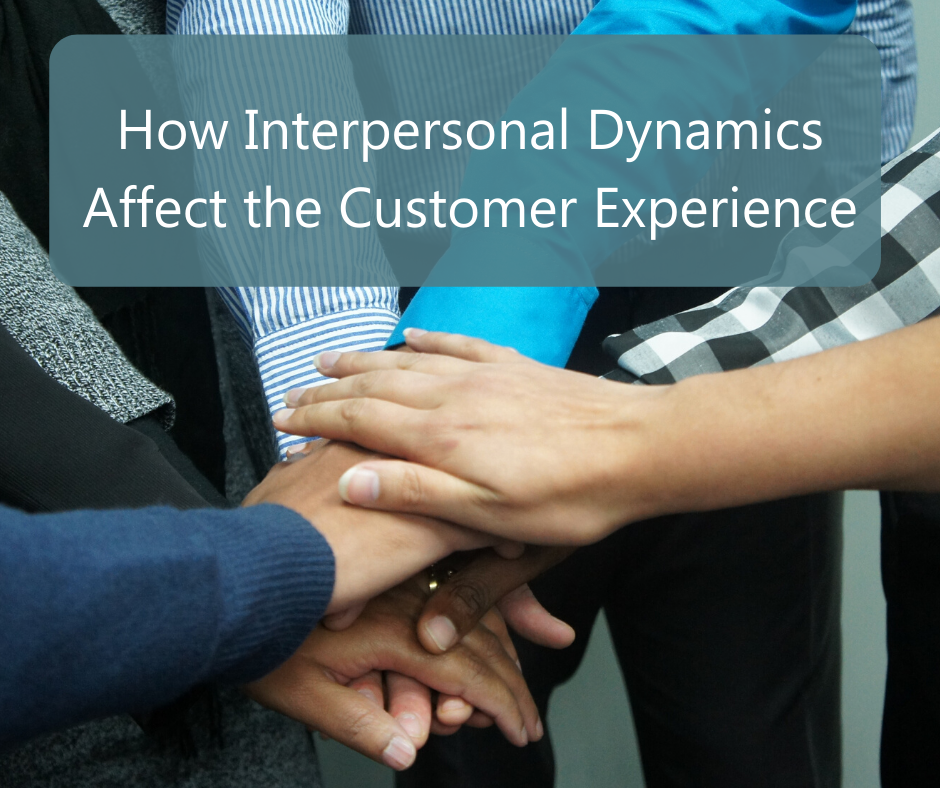 A customer’s experience and impressions derive first and foremost from interactions with the individual employee, and only afterwards with the larger organization.
A customer’s experience and impressions derive first and foremost from interactions with the individual employee, and only afterwards with the larger organization.
For example, people who visit a healthcare facility are not thinking of the entire organization–they are assessing their experience through the receptionist as they enter the facility, the nurse as they are triaged, the custodian as they sit in the waiting room, and the physician who diagnoses the problem. At each interaction, the patients are forming an impression of that healthcare facility.
Each employee is a representative of that organization–whatever the industry is–and should help to maintain the mission of the company. Every interaction should reflect what the marketing has promoted about the company, ideally going beyond the promotional marketing to offer a genuinely good and caring experience.
How can a company get to that ideal experience? By projecting goodwill.
The importance of goodwill
This is perhaps the most fundamental concept every employee must grasp if their livelihood depends on customers being satisfied with the goods and services they offer. The feeling of satisfaction between companies and their customers converts to an intangible economic asset known as goodwill. Company goodwill comes from its community of buyers and increases the company’s value and–ultimately–ability to generate future income.
Every enterprise relies on customer goodwill as a means to growth and brand strength, as goodwill refers to the way that the organization is perceived in the markets that it serves. Relationships, trust, and communication are at the heart of the interpersonal dynamics that can connect the buyer to the business or the business to the surrounding community.
This goodwill contributes to economic success and sustainability through friendly, helpful, and cooperative feelings or attitudes. When goodwill ceases, so do positive feelings and a desire to be helpful. To return to the opening scenario, the people at the healthcare facility are constantly assessing that experience, and when they encounter an unpleasant or rude employee who is not expressing goodwill, the patients will negatively assess that experience. When that happens, the company is failing to fulfill its mission. If an organization missteps, the misstep is generally forgiven if enough goodwill exists within the community. If it doesn’t have that goodwill built up, the reputation and revenue of the company often suffer.
Investopedia puts it like this: “Business goodwill is an intangible asset owned by and associated with the operation of a company. The goodwill of a company increases its value, as qualities such as the company’s customer base, its brands, products, location, workforce, and reputation demonstrate the company’s proven track record of generating income.”
How interpersonal dynamics and goodwill work together
Interpersonal dynamics are the basis of goodwill and involve how one person feels and behaves toward another.
According to Dr. Rick Hanson in Psychology Today, “Studies show that feeling cared about buffers against stress, increases positive emotions, promotes resilience, and increases caring for others.”
When individual attitudes and behaviors express goodwill, companies gain loyalty. On the other hand, when individual attitudes and behaviors do not express goodwill, frustration and consumer dissatisfaction occur. The result? Increased costs and compromised efficiency, speed, and quality, all of which impacts customer satisfaction.
It is in the simple act of caring that individual employees can make the greatest customer and company impact.
It seems obvious to say that employees should demonstrate care in customer-facing interactions, but it’s hard to overstate their importance. The person arriving at a healthcare facility has many unspoken questions: “Can this person help me?” “Do I trust them?” Will this be a good experience?” Companies consistently lose customers because of rude or uncaring treatment or attitudes. Each employee is a representative of that company and should understand that their job is to retain customers. How can employees show that they care? They can
- Be helpful
- Be courteous
- Do what is needed–and go beyond that
- Promote the company and gain more business as a result.
People who care are seen as reliable and as dedicated to the mission of the company and to the customers of that company. This helps to build goodwill within and beyond the company.
But goodwill and caring can and should also be demonstrated within a company. In a company’s peer-to-peer environment, employees can show they care in many ways, including asking themselves:
- Is my work of professional quality that I am handing off to another employee?
- Am I responsive and responsible?
- Can my colleagues and peers depend on me to do my work in a timely and professional manner?
If the employees can answer “yes” to these questions, they are raising the overall experience of the company. This kind of caring creates goodwill internally among peers and management. By contrast, if an employee consistently produces late or unprofessional work, that demonstrates lack of caring.
Having a caring internal environment can have real ramifications. The more that employees of an organization care about their peers, the more supportive the environment will be. This can be essential in certain situations, so that people watch out for each other. Sometimes this can have very physical repercussions. In manufacturing and construction industries, employees can help to ensure one another’s safety, and the absence of this caring can be very problematic. A caring and supportive environment can also lead to greater job satisfaction and retention.
How to achieve a genuine, caring environment in an organization
There are specific steps that an organization can take to help create an authentically caring workforce:
- Hire the right people. Creating goodwill begins with the hiring process. Look for helpers–for people who have the right attitudes and behaviors and mindsets.
- Invest in employee development and training. Be consistent with messaging in training and in company materials to encourage the employees to embrace the mission.
- Listen and take a collaborative stance. Be responsive to the customers and seek their feedback. Also, be responsive to the employees. Solicit their feedback about the company’s practices. Be open to new ideas and suggestions.
- Be honest about bad performers, people who don’t embody the principles of the organization. As the company evolves, continue to gauge whether they still serve the organization.
Corporate Social Responsibility: Initiatives that promote internal and external goodwill
One way that companies can promote and engender goodwill is to participate in corporate social responsibility (CSR). These initiatives can help to support the local, national, or global community in many different ways, such as funding educational programs or providing equipment to a local sports team. CSR initiatives can also focus on updating a company’s work environment to promote safety and environmental responsibility.
In obvious ways, a company’s CSR engenders external goodwill in customers of that company and can result in additional revenues, expanded markets, new opportunities, and less litigation.
What may be less obvious is that a company’s dedication to CSR can be a real incentive for attracting and retaining employees who want to align with a company’s CSR initiatives, thus creating internal goodwill.
Sometimes we forget that “interpersonal” means person-to-person. We can’t function without people: customers, employees, funders, mentors, family. We are constantly interacting with others. The quality of those interactions is essential to the success of any organization, and having good interactions can be essential to a growing and evolving company.
If you are unsure of how your customers are responding to the company’s goodwill, or if you are dissatisfied with how your employees are expressing that goodwill, let’s talk. As business consultants, we at Bellewether can review the hiring process to ensure that you are hiring and retaining the best people to help your organization fulfill its mission. We can also help with interpersonal conflict resolution, employee development and training, organizational problem solving, and so much more.






